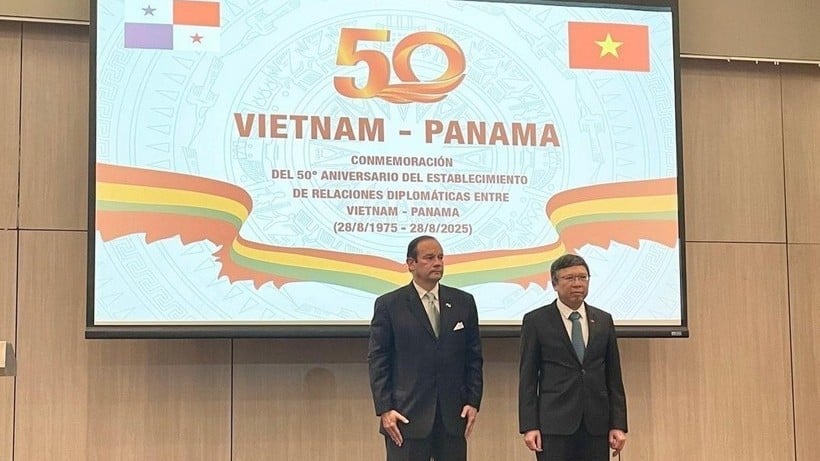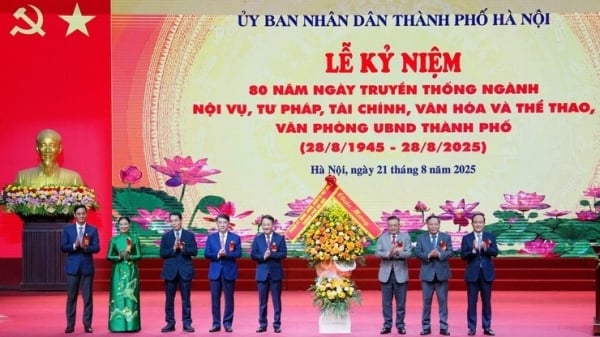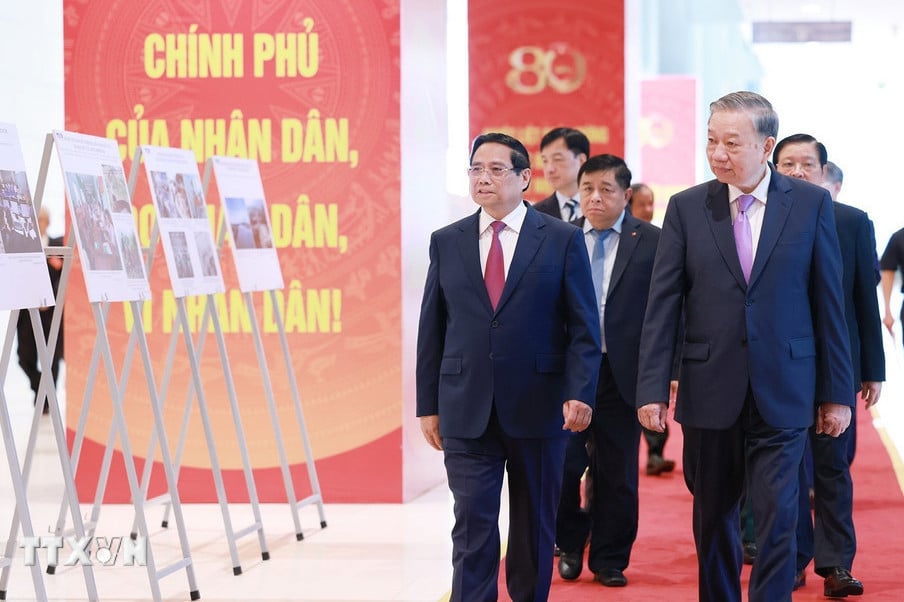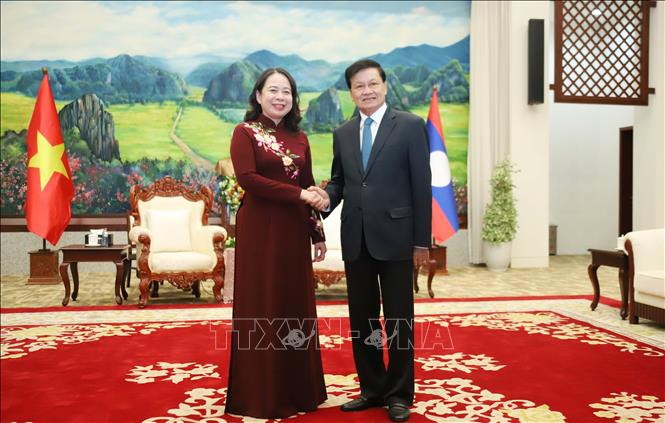Many bottlenecks need to be removed
There are still some issues that need to be resolved in the procedures for approving investment policies and issuing investment registration certificates. There are opinions proposing to abolish the procedures for approving investment policies because it is considered that this procedure has unclear objectives, is ineffective, overlaps with many other regulations, and creates barriers to investment.
However, many critics argue that removing this procedure will increase state management risks, cause damage to businesses and affect the investment and business environment.
In the context of laws on investment, land, bidding, planning, etc. being continuously amended, the procedures for approving investment policies and selecting investors have encountered many difficulties and problems, such as: difficulty in determining cases where procedures need to be carried out (for example, with industrial cluster projects, mineral exploitation projects, or when there is only one interested investor); inadequacies in the content of the assessment of conformity with planning, technology, financial capacity, etc., leading to complicated and lengthy procedures; as well as a lack of clear guidance on selecting investors in cases of special designation and selection according to the bidding law.
 |
| The draft proposes to amend, improve and simplify investment and business procedures. |
In addition, Articles 30 - 32 of the Investment Law stipulate that the authority to approve investment policies belongs to the National Assembly , the Prime Minister, and the Provincial People's Committees. Although there has been clearer decentralization in the amended laws, further research on more thorough decentralization, especially for projects under the authority of the National Assembly and the Prime Minister, is still necessary to promote decentralization and improve management efficiency.
Regarding the procedures for granting Investment Registration Certificates, it mainly applies to projects of foreign investors and foreign-invested economic organizations. In practice, there are many difficulties in determining compliance with planning (especially for small projects), investment rate conditions, number of employees, etc. Many previous provisions have been removed in the new law, and the Government is responsible for detailed regulations, so it is necessary to continue to amend and supplement in the guiding decree.
Regarding the procedures for establishing economic organizations by foreign investors, the current regulation requiring an investment project or investment certificate before establishing an organization does not create equality between domestic and foreign investors, affecting the attractiveness of the form of investment through establishing economic organizations.
In order to create a new turning point in reforming administrative procedures related to investment activities, at the same time improving the effectiveness and efficiency of state management of investment and perfecting the mechanism of investment management decentralization, contributing to removing difficulties and creating favorable conditions for investors with simpler procedures and lower costs, the Ministry of Finance is seeking opinions on the draft Investment Law (replacement).
The draft proposes to amend, improve and simplify investment and business procedures, including: procedures for approving investment policies, selecting investors, granting investment registration certificates, as well as investment procedures in the form of establishing economic organizations by foreign investors. The goal is to remove “bottlenecks”, speed up implementation progress and put projects into operation.
At the same time, continue to promote decentralization of investment approval authority from the National Assembly and the Prime Minister to localities, implementing the policy of "locality decides, locality acts, locality takes responsibility".
Creating ventilation while ensuring effective management
Regarding policy implementation solutions, the Ministry of Finance's draft proposes 3 options.
The first option is quite comprehensive. The draft stipulates that the procedures for approving investment policies and granting investment registration certificates only apply to projects with major impacts on the environment, national defense and security, and the use of resources such as land, forests, seas, minerals, or large-scale projects in the fields of seaports, airports, etc. These procedures are simplified, barriers are reduced, progress is accelerated, and social investment resources are effectively exploited.
Decentralization and delegation of authority have been strengthened, narrowing the scope of projects that must undergo procedures. The National Assembly retains authority over projects with special policies, large, complex projects of strategic nature. The Prime Minister has delegated authority to the provincial People's Committees to decide on policies for foreign investment projects in afforestation, gambling, casino, offshore wind power, and projects using resources in sensitive areas or on a large scale in important fields.
The appraisal content is stripped of unnecessary parts such as technology, housing, progress, focusing on the conformity with planning directly related to the project. The form of investor selection is also clearly supplemented, including designation or selection in special cases according to the bidding law.
Regarding the procedures for granting Investment Registration Certificates, applicable to projects not subject to investment policy approval, with foreign investors or organizations with foreign capital controlling over 50% of the charter capital. The determination of conformity with planning, investment rate per land area, and number of employees will be completed in a unified direction in the guiding Decree.
Project management that is not subject to investment policy approval and investment registration will follow specialized regulations on planning, land, environment, construction, labor, fire prevention and fighting and related laws during implementation.
This option also allows foreign investors to establish economic organizations without having to have an investment project before establishment, in order to facilitate investment activities.
Option 2 proposes to abolish the investment policy approval procedure in the Investment Law, instead managing projects according to specialized laws. At the same time, amend and supplement regulations on granting Investment Registration Certificates in the direction of simplification, eliminating a number of conditions related to planning and investment rates; and allowing foreign investors to establish economic organizations without the need for procedures for granting/adjusting investment certificates.
Option 3 maintains current regulations.
The Ministry of Finance recommends choosing the first option for the following reasons: the investment policy approval procedure is a legal document that ensures the legitimate rights of investors, and is also a tool to screen sensitive projects with profound socio-economic impacts, ensuring safety and sustainable development. This procedure helps to simultaneously appraise contents related to planning, land, and environment right from the project preparation stage, saving time and costs compared to separate procedures.
Carrying out investment policy approval procedures helps to review the overall feasibility and socio-economic efficiency of the project; ensure consistency between specialized laws; create a transparent, clear, and accessible environment for investors.
This is also an input procedure for other procedures such as land allocation, land use purpose conversion, construction permit issuance, environment, etc. Abolishing this procedure will cause great disruption in the relevant legal system and the investment and business environment. In addition, this procedure is also a tool to check, monitor, and evaluate investment activities of investors and management agencies.
The amendment and removal of some requirements for granting Investment Registration Certificates helps to resolve difficulties and speed up procedures. Management of projects not subject to investment policy approval and issuance of Investment Registration Certificates is transferred according to specialized laws to create transparency and at the same time ensure effective state management.
Allowing foreign investors to establish economic organizations without investment projects or procedures for granting or adjusting investment registration certificates helps create a more attractive business investment environment, promotes investment attraction, and ensures equal treatment between domestic and foreign investors.
Source: https://baodautu.vn/du-tinh-phan-cap-tham-quyen-chap-thuan-chu-truong-dau-tu-cac-du-an-cho-dia-phuong-d357800.html
































![[Photo] New look of the coastal city on the Han River](https://vstatic.vietnam.vn/vietnam/resource/IMAGE/2025/8/22/26f58a4a29b9407aa5722647f119b498)































































Comment (0)